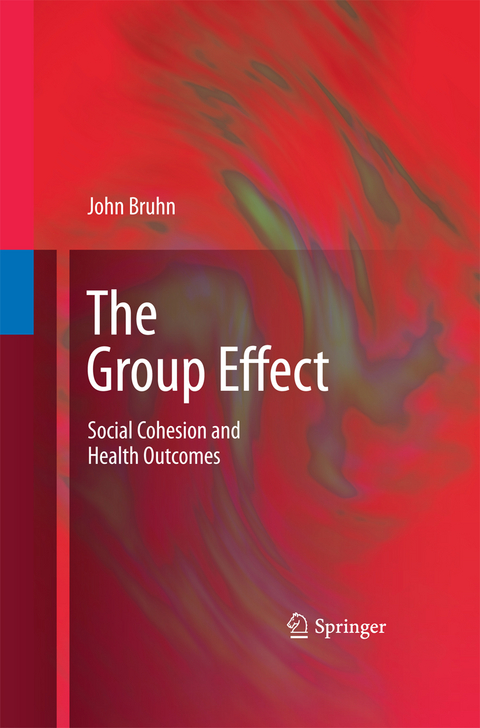
The Group Effect
Social Cohesion and Health Outcomes
Seiten
2014
Springer-Verlag New York Inc.
978-1-4899-8346-6 (ISBN)
Springer-Verlag New York Inc.
978-1-4899-8346-6 (ISBN)
Sociologists and anthropologists have had a long interest in studying the ways in which cultures shaped different patterns of health, disease, and mortality. Social scientists have documented low rates of chronic disease and disability in non-Western societies and have suggested that social stability, cultural homogeneity and social cohesion may play a part in explaining these low rates. On the other hand, in studies of Western societies, social scientists have found that disease and mortality assume different patterns among various ethnic, cultural and social-economic groups. The role of stress, social change and a low degree of cohesion have been suggested, along with other factors as contributing to the variable rates among different social groups.
Social cohesion has been implicated in the cause and recovery from both physical and psychological illnesses. Although there has been a large amount of work established the beneficial effects of cohesion on health and well-being, relatively little work has focused on HOW increased social cohesion sustains or improves health. This work is based on the premise that there are risk factors, including social cohesion that regulate health and disease in groups. One of the challenges is how to measure social cohesion – it can be readily observed and experienced but difficult to quantify. A better understanding of how social cohesion works will be valuable to improving group-level interventions.
Social cohesion has been implicated in the cause and recovery from both physical and psychological illnesses. Although there has been a large amount of work established the beneficial effects of cohesion on health and well-being, relatively little work has focused on HOW increased social cohesion sustains or improves health. This work is based on the premise that there are risk factors, including social cohesion that regulate health and disease in groups. One of the challenges is how to measure social cohesion – it can be readily observed and experienced but difficult to quantify. A better understanding of how social cohesion works will be valuable to improving group-level interventions.
The Significance of the Social Group.- The Concept of Social Cohesion.- Social Cohesion and Related Concepts: Social Support and Social Capital.- Cohesive Societies.- Cohesive Communities.- Cohesive Neighborhoods.- Cohesive Families.- Social Cohesion as a Mediator of Health Outcomes.
| Erscheint lt. Verlag | 8.10.2014 |
|---|---|
| Zusatzinfo | XVII, 171 p. |
| Verlagsort | New York |
| Sprache | englisch |
| Maße | 155 x 235 mm |
| Themenwelt | Geisteswissenschaften ► Psychologie ► Psychoanalyse / Tiefenpsychologie |
| Geisteswissenschaften ► Psychologie ► Sozialpsychologie | |
| Medizin / Pharmazie ► Pflege ► Palliativpflege / Sterbebegleitung | |
| Studium ► Querschnittsbereiche ► Prävention / Gesundheitsförderung | |
| Sozialwissenschaften ► Soziologie | |
| ISBN-10 | 1-4899-8346-5 / 1489983465 |
| ISBN-13 | 978-1-4899-8346-6 / 9781489983466 |
| Zustand | Neuware |
| Haben Sie eine Frage zum Produkt? |
Mehr entdecken
aus dem Bereich
aus dem Bereich
das Manual zur psychologischen Gesundheitsförderung
Buch | Hardcover (2023)
Springer Berlin (Verlag)
39,99 €
Orthomolekulare Medizin in Prävention, Diagnostik und Therapie
Buch | Hardcover (2022)
Thieme (Verlag)
71,00 €


